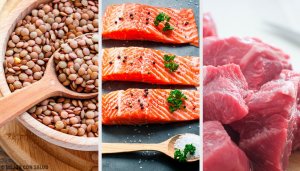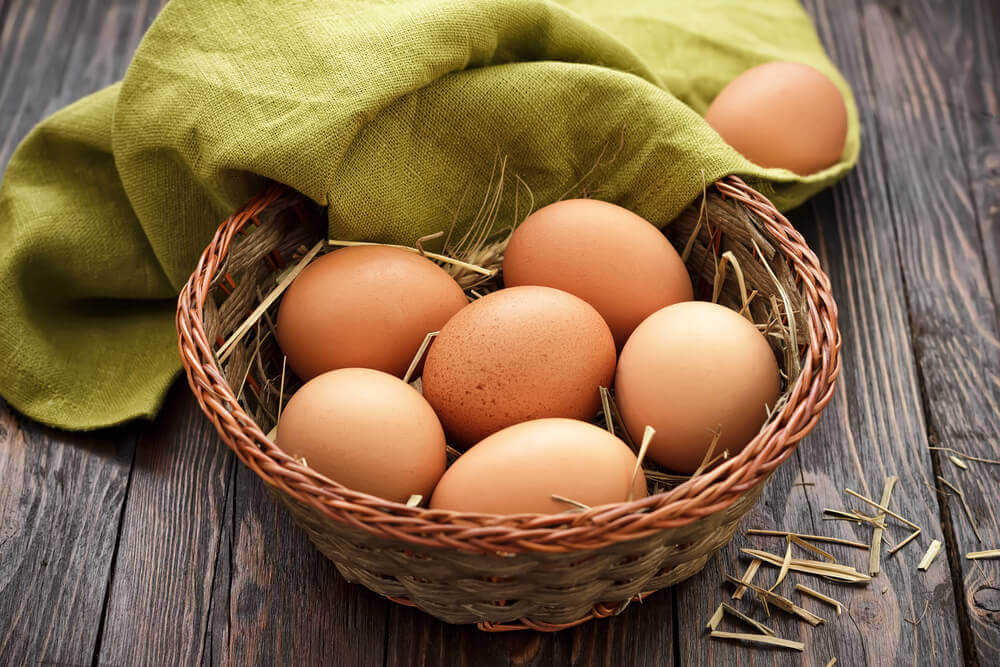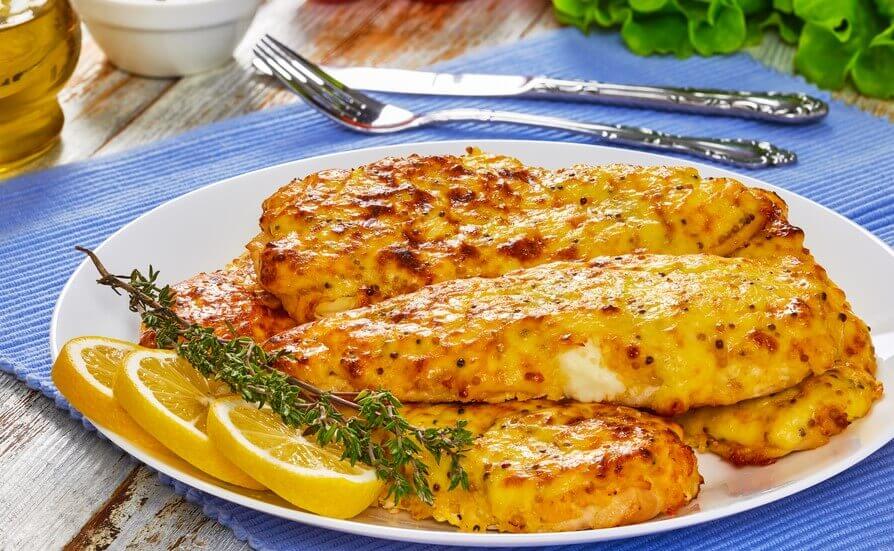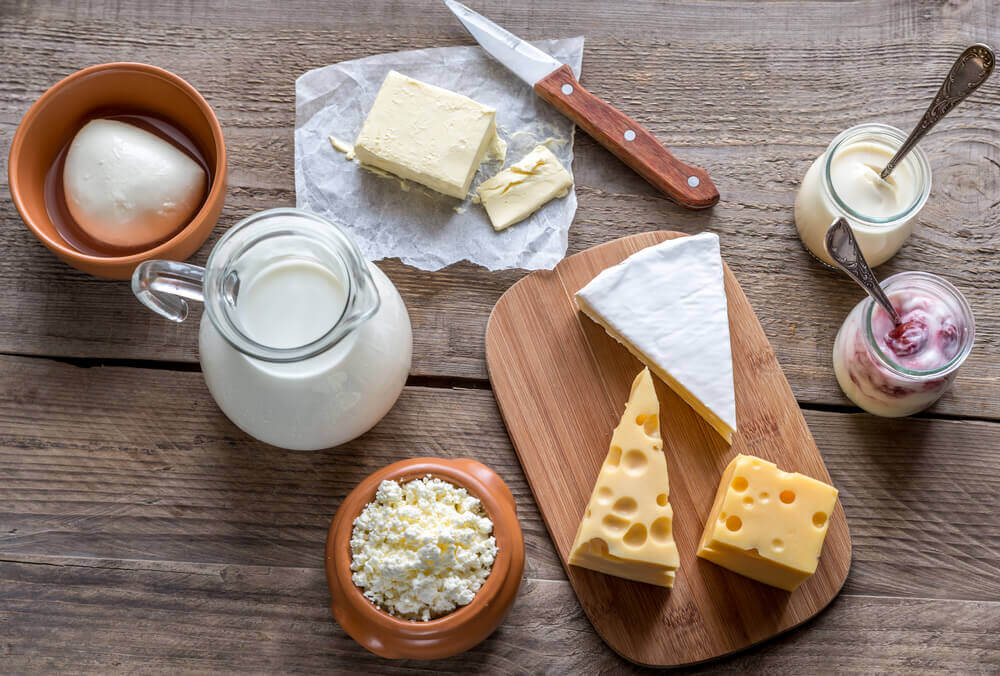Lean Protein Is a Good Addition to Your Diet


Written and verified by Doctor Carlos Fabián Avila
Lean protein is an essential nutrient for your body. This is because it’s found in foods from all kinds of groups. It’s also the best type of protein for you and provides a minimum amount of fat. Furthermore, it tends to give your body more energy, providing between 50 to 55 calories per serving with only 1 to 3 grams of fat.
This type of protein makes up between 10 and 35% of the caloric requirements for a normal-sized person. That works out to be 46 grams for women and 56 grams for men.
Below we’ll discuss the benefits of consuming lean proteins and what foods you can incorporate into your diet.
How lean protein can benefit your body
Protein is the main component of your muscle tissues. Among its main functions are:
- It transports oxygen and carbon dioxide through your bloodstream
- It allows the production of tissues that both support and fill the various parts of your body, such as collagen, elastin, and keratin
- It’s essential for the formation of antibodies that are responsible for dealing with infections and other foreign invaders in your body
- Lean protein promotes the production of gastric juices, hormones, hemoglobin, vitamins, and various enzymes involved in your body’s chemical reactions
- Two components of this type of protein, myosin, and actin, aid in muscle contractions that allow cells to move
The importance of eating lean protein
In addition to all these functions, lean proteins add others:
- It’s ideal for weight loss diets thanks to the high protein content and low amount of fat. Lean protein will make you feel full and prevent those food cravings that cause you to overeat.
- This type of protein is especially good for people who play sports and are developing new muscle tissue
- It influences the growth of your hair and nails, as well as the health of your skin
- Eating lean protein provides you with quality energy reserves.
Learn about the Seven Benefits of Taking Collagen Daily
Food that contains lean protein
The following is a list of foods that are good sources of lean protein:
Eggs

Eggs are one of the best options because they’re rich in minerals, vitamins, healthy fats, antioxidants, and nutrients that are essential for your brain.
This is the only food that can be completely separated from fat (egg whites) with plenty of protein: egg whites contain 11% protein and 0% fat.
Take note:
One large egg is equivalent to 6 grams of protein and 78 calories — 35% of these are from protein.
Beef
A small steak provides 20 grams of protein, and a medium sized steak may contain up to 50 grams.
The way you cook it determines how many nutrients are preserved. Therefore, it’s best to prepare steak in the oven or roasted to maximize the protein content.
If you plan to use oil, opt for healthy ones. Coconut, avocado, and sesame oil will give this kind of meat exceptional flavor.
Chicken and turkey

Poultry, such as chicken and turkey, provides lean protein and is a much healthier choice than red meat. Both chicken and turkey are healthier than red meat. Furthermore, they’re easy to prepare.
Due to the high content of uric acid, purines are a leading cause of diseases like arthritis. Hence, it’s recommended to eat red meat in moderation.
Fish and seafood
These meats contain lean protein, are healthy, and contain high doses of essential nutrients like omega-3 fatty acids.
- Hake, sole, and cod contain between 10 to 20% protein with less than 5% fat
- Tuna contains high-quality fats when eaten fresh. This is because one serving of tuna is equivalent to 30 grams of protein and 179 calories, with only 1% fat.
- We recommend always opting for fresh-caught tuna because the canned varieties contain lots of salt and preservatives
- Shrimp and prawns are low in calories but very rich in omega-3 fatty acids. They also contain other nutrients, such as selenium and vitamin B12.
Make these Three Easy and Delicious Fish Recipes
Dairy products

In addition to their calcium content and low fat, dairy products are another good option for lean protein.
One cup of skim milk contains 8.4 grams of protein and only 0.4 grams of fat.
- Cottage cheese is a very lean cheese with high-quality protein, thanks to its animal origin. It contains 12% protein and 4% fat. In addition, it’s rich in nutrients other than calcium, such as selenium, phosphorus, and vitamins B2 and B12.
Lentils
Lentils are rich in fiber, potassium, magnesium, folate, iron, manganese, and copper.
One cup of cooked lentils gives you 18 grams of protein in 230 calories.
It’s good to combine lentils with a grain, such as rice, to get a complete protein balance while including all the essential amino acids and a little fat.
If you’re trying to reduce your consumption of meat, increase your intake of lentils. Just remember that you get higher quality protein from meat than from vegetable sources.
Are you getting enough lean protein?
Are you including enough lean protein in your diet? What are your favorite sources? Remember to have variety in your diet in order to maximize the benefits of the different nutrients.
If you have any doubts about how to follow a balanced diet, consult your doctor or a nutritionist. Furthermore, the professional will be able to tell you what’s best for your body, without forgetting about the goals you’ve set for yourself.
All cited sources were thoroughly reviewed by our team to ensure their quality, reliability, currency, and validity. The bibliography of this article was considered reliable and of academic or scientific accuracy.
- Devlin, T. M. (2006). Bioquímica. Libro de texto con aplicaciones clínicas. Barcelona: Reverté.
- Hathcock, J. N. (1997). “Vitamins and minerals: efficacy and safety”, American Journal of Clinical Nutrition, 66 (2): 427-437.
- Kerstetter, J. E.; O’ Brien, K. O.; Caseria, D.M; Wall, D. E., & Insogna, K. L (2005). “The impact of dietary protein on calcium absorption and kinetic measures of bone turnover in women”, J Clin Endocrinol Metab, 90: 26-31.
- Scott, J. M. (1999). “Folate and vitamin B12”, Proc Nutr Soc, 2 (58): 441-448.
This text is provided for informational purposes only and does not replace consultation with a professional. If in doubt, consult your specialist.








